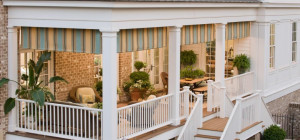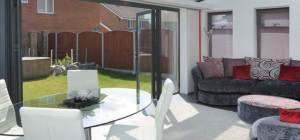When it comes to the construction and renovation of your dwelling, the decisions you make can have a long-lasting impact on the durability and performance of your structure. One crucial decision is choosing the right metal sheet grades for your roof. Let’s explore the most corrosion-resistant option available and discuss the difference between hot and cold rolled steel for roofing, examine how tensile strength affects grade selection, and unveil some of the top grades.
Visit our website https://renoteckroofing.com/services/metal-roofing/
Shielding Your Investment with Corrosion-Resistant Metal Roofing
When selecting metal sheet grades, it is necessary to prioritize anti-rest capabilities. This attribute acts as a protective shield for your roof, safeguarding it against the constant onslaught of extreme weather conditions. When we refer to anti-corrosian capabilities in roofing, we are discussing materials that can withstand rain, snow, humidity, and even saltwater environments without succumbing to rust or deterioration.
Metal grades that are highly resistant to such undesirable processes often consist of alloys like stainless steel and aluminum. The former contains chromium, which creates a protective oxide layer that prevents corrosion. Similarly, the latter naturally forms an oxide layer that provides excellent rust resistance.
The Heat of the Matter – Hot vs. Cold Rolled Steel for Roofing
If you are contemplating the choice between hot rolled and cold rolled steel is, keep in mind that each type has its own strengths and applicationsю Therefore, having a clear understanding of their differences is crucial in making an informed decision.
Hot rolled steel is a strong and flexible material that undergoes formation at high temperatures. This makes it ideal for complex designs. However, it is important to note that this material may be more prone to surface imperfections, which is why proper coating and maintenance are required.
On the other hand, cold rolled steel undergoes a different processing method at lower temperatures, which gives it a smoother and more precise finish. While it may be less flexible, it excels in providing a sleek and polished appearance for your roof.
The Backbone of Your Roof – Tensile Strength’s Impact on Roofing Grade Selection
Think of your roof as the strong foundation that supports your entire structure. Tensile strength, in this analogy, is like the backbone that keeps it standing tall and sturdy. Tensile strength refers to a material’s ability to withstand tension or pulling forces without breaking or deforming. This characteristic plays a vital role in choosing the right roofing grade, particularly in areas prone to severe weather conditions.
If you live in an area that experiences heavy snow loads or strong winds, it’s important to choose top structure materials with high tensile strength. Steel, especially high-strength alloys, is a great option for these conditions. It offers the required structural support to keep everything intact even during cataclysms.
Unrivaled Quality of Top Grades Metal Roofings
Now, let’s reveal the highest quality grades of metal roofing materials that have earned praise in the industry. These grades exemplify excellent durability, performance, and aesthetic charm.
Galvalume is one of the top choices. It combines galvanized steel and aluminum, offering the advantages of both materials. It provides exceptional anti-corrosion capabilities, impressive endurance, and is safer for the planet than many alternatives with higher environmental footprints.
Aluminum is a reliable choice for both residential and commercial buildings. It offers excellent rust resistance and its lightweight structure makes it versatile for different architectural styles.
Grade 316 stainless steel is commonly known as “the king of metal roofing” due to its exceptional resistance to deterioration. This makes it particularly suitable for coastal properties, where the salt in the air can pose problems for other materials. Additionally, its radiant finish adds a touch of timeless elegance.
High-strength steel, such as Grade 550 steel, is ideal for industrial and commercial purposes. These grades offer the strength needed to withstand tough conditions and support heavy loads. They are reliable and durable options in the industry.
For those who desire a material that ages with elegance, copper is the epitome of timeless beauty. As time passes, it develops a unique greenish patina that adds to its allure. But beyond its aesthetic appeal, copper also boasts exceptional durability and resistance to the elements.
Tailoring Your Choice to Your Needs – Roofing Grade Selection
Choosing the right roofing grade is similar to having a custom-made suit – it needs to be perfectly tailored to your unique requirements and situation. Here are some important factors to keep in mind when deciding on the perfect grade:
Consider the climate of your specific area, taking into account factors such as rainfall, temperature fluctuations, and humidity levels. If you live in a region with frequent heavy rain, it’s important to choose materials that can effectively shed water. Similarly, in areas where temperature variations are significant, opt for materials that can expand and contract without compromising their durability.
Consider your budget when planning your project. While top-grade materials are appealing, they can be costly. Find options that provide a balance between quality and affordability.
Your roof plays a crucial role in both protecting your building and defining its overall aesthetics. It is advisible to select materials that not only complement the architectural style of your property but also enhance its visual appeal as a whole.
Consider checking the local building codes and regulations before proceeding with any roofing project. It’s important to note that certain areas might have specific requirements or limitations regarding the choice of materials, colors, or styles.
If you’re looking for a long-lasting option, focus on materials that are known for their durability. While they may be more expensive initially, they ultimately pay off by lasting longer and reducing the need for frequent replacements.
Don’t overlook the maintenance requirements. Think about how much time and effort you’re willing to invest in upkeep. If you lead a busy lifestyle, low-maintenance options may be more preferable.
Considering the environmental impact is becoming increasingly important in the construction industry. It’s crucial to choose materials that align with your environmental values and promote energy efficiency and sustainability.








